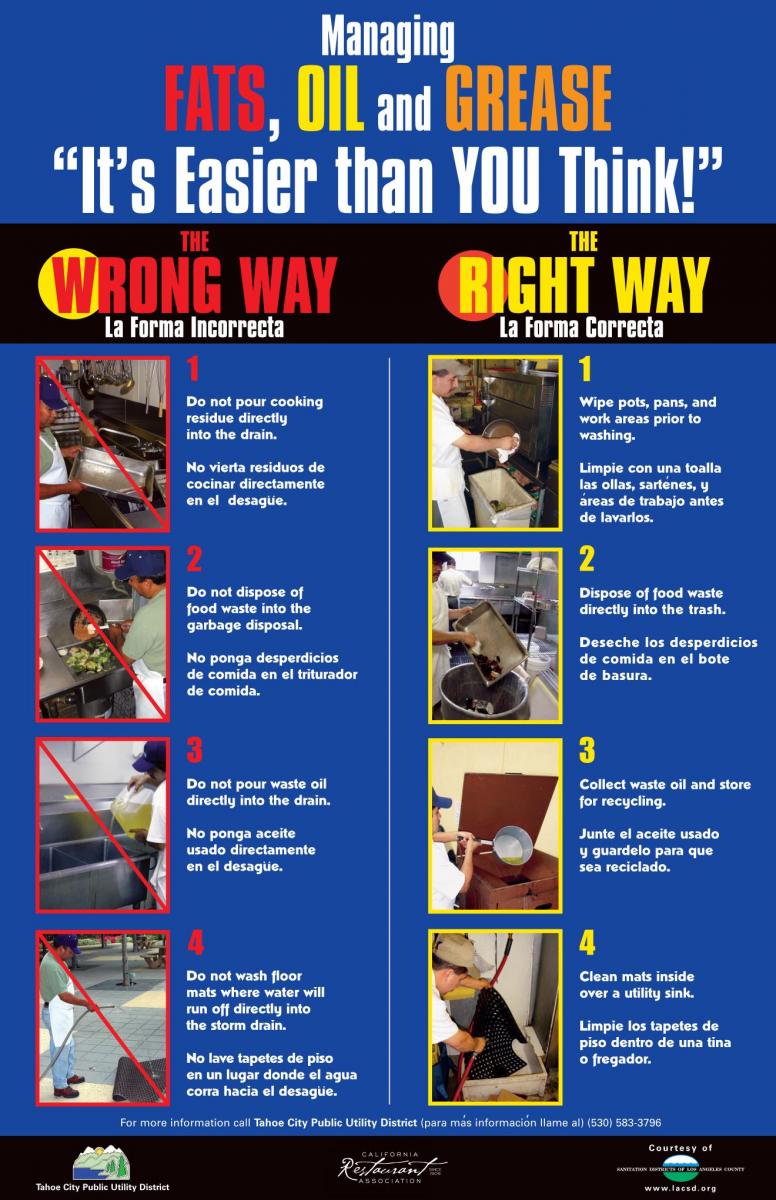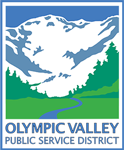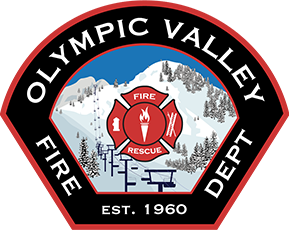Sewer Overflow Protection: A Shared Responsibility
To help keep our mountain environment and waterways clean for the health and enjoyment of all, home and business owners, visitors, and District staff must do their part to keep the sewer system flowing and reduce the risk of sewer clogs and overflows. The poster below provides an overview of responsibilities shared amongst all parties.
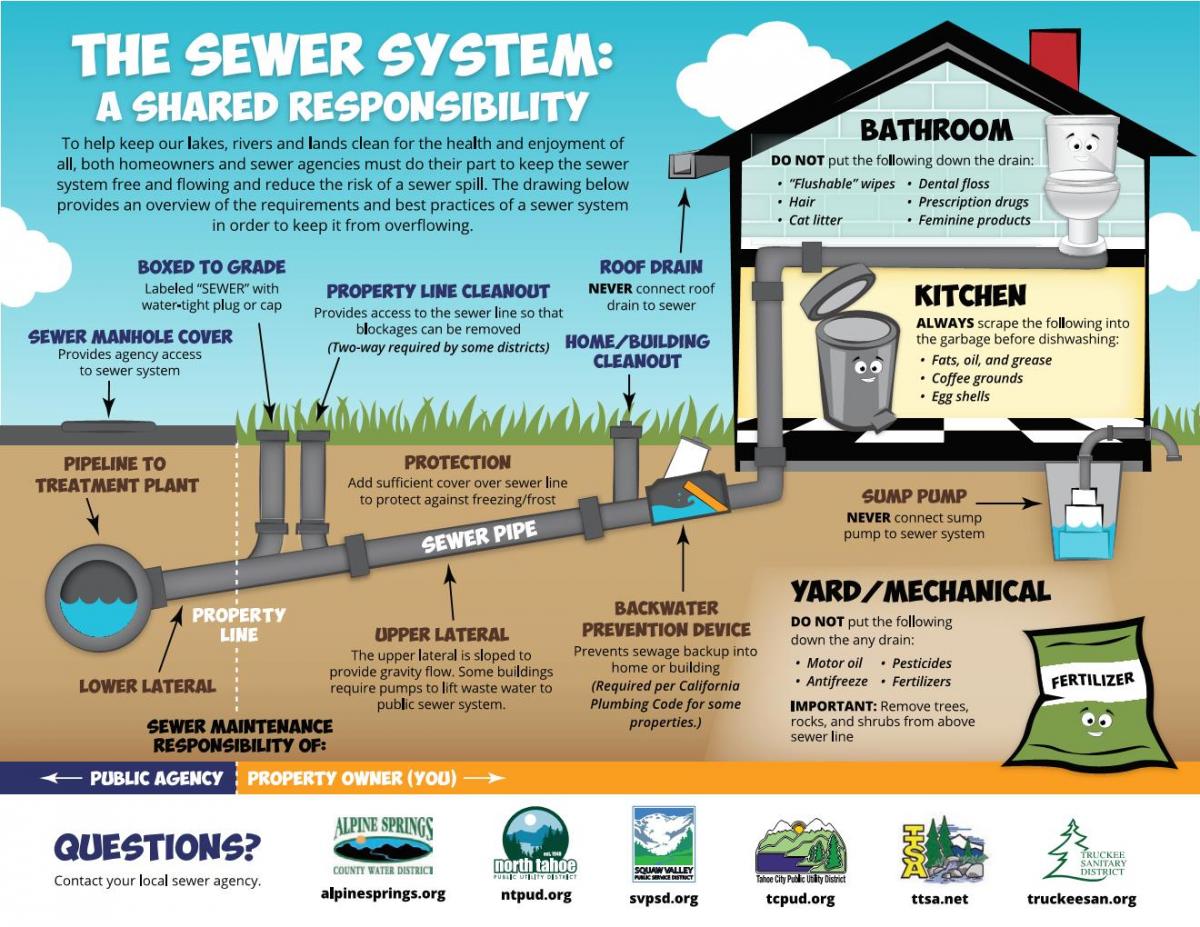
Please be aware that your toilet and sinks are not trash cans. Disposing of anything other than human waste or toilet paper down your toilet or drain can contribute to build up and blockages within sewer pipes. A sewer pipe blockage can result in sewage overflowing out of the sewer system and onto the ground. Sewer overflows pose a serious public and environmental health risk.
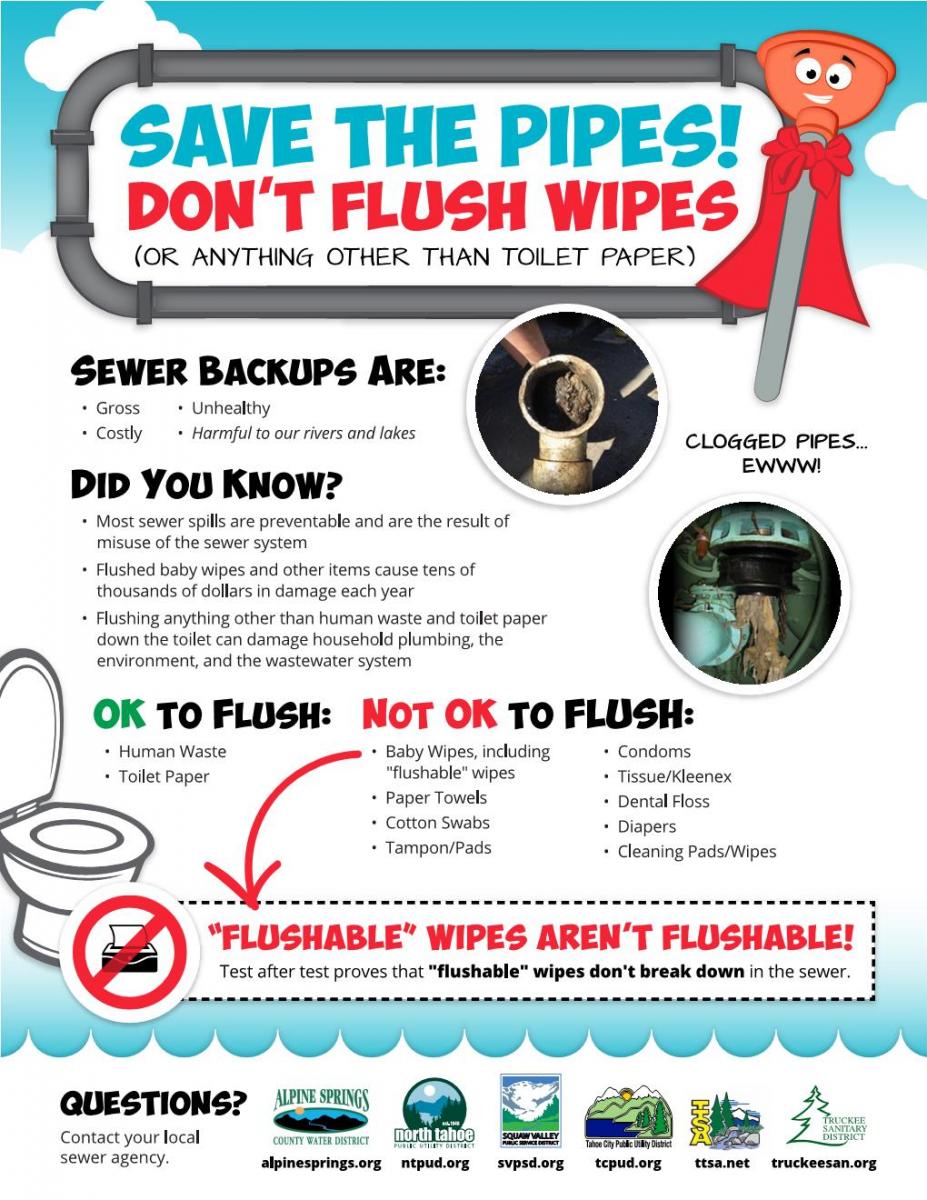
FOG Program
Fats, oils, and grease (FOG) present in the sewer pipes are one of the main causes for sewer overflows. When these cooking byproducts get washed down the drains by homeowners and restaurants, they build up on the inside of the pipe and restrict the flow of sewer water. Overtime, the FOG can accumulate to such a degree that sewer water could backup and overflow inside your home or restaurant, or onto public streets.
Garbage disposals, hot water, and dish soap do not grind up or wash away FOG. The hot soapy water only serves to carry the FOG a few feet further down your drain – usually somewhere between your house foundation and property line. Once the water cools, the FOG solidifies and sticks to the inside of the sewer lateral.

Source: Sacramento Area Sewer District
Here are steps you can take to help prevent FOG accumulation, clogging, and sewer overflows:
- Pour cooking fats, oils, and grease into a container with a tight-sealing lid and store it in a safe, dry area for it to cool. Dispose of the container in your trash receptacle on your designated trash day.
- For greasy pans that need to be soaked, first pour the grease into a container as mentioned above, then dry wipe the pan with a paper towel or napkin before placing it in the sink to soak.
- Keep dairy products, fats, grease, or greasy foods out of the sink and garbage disposal. Garbage disposals only break up food into smaller pieces that can easily stick to the FOG that collects inside of your sewer pipe.
Restaurants and commercial sized kitchens in the District are required to install waste pretreatment removal devices such as grease interceptors to mitigate FOG accumulation in sewer infrastructure. Additionally, kitchen best management practices highlighted in the poster below can help prevent grease-related overflows. More information on District requirements for installation, maintenance, and inspection of waste pretreatment removal devices can be found in the District Sewer Code and Technical Specifications.
